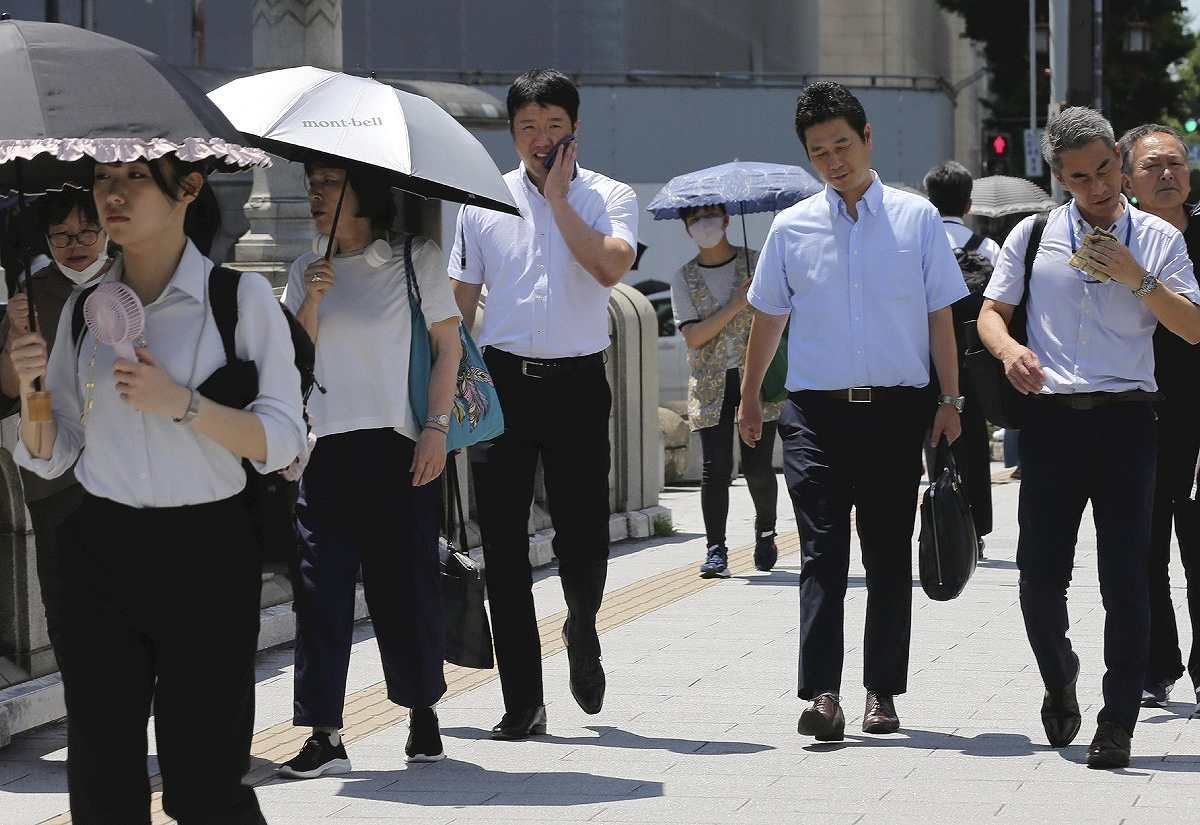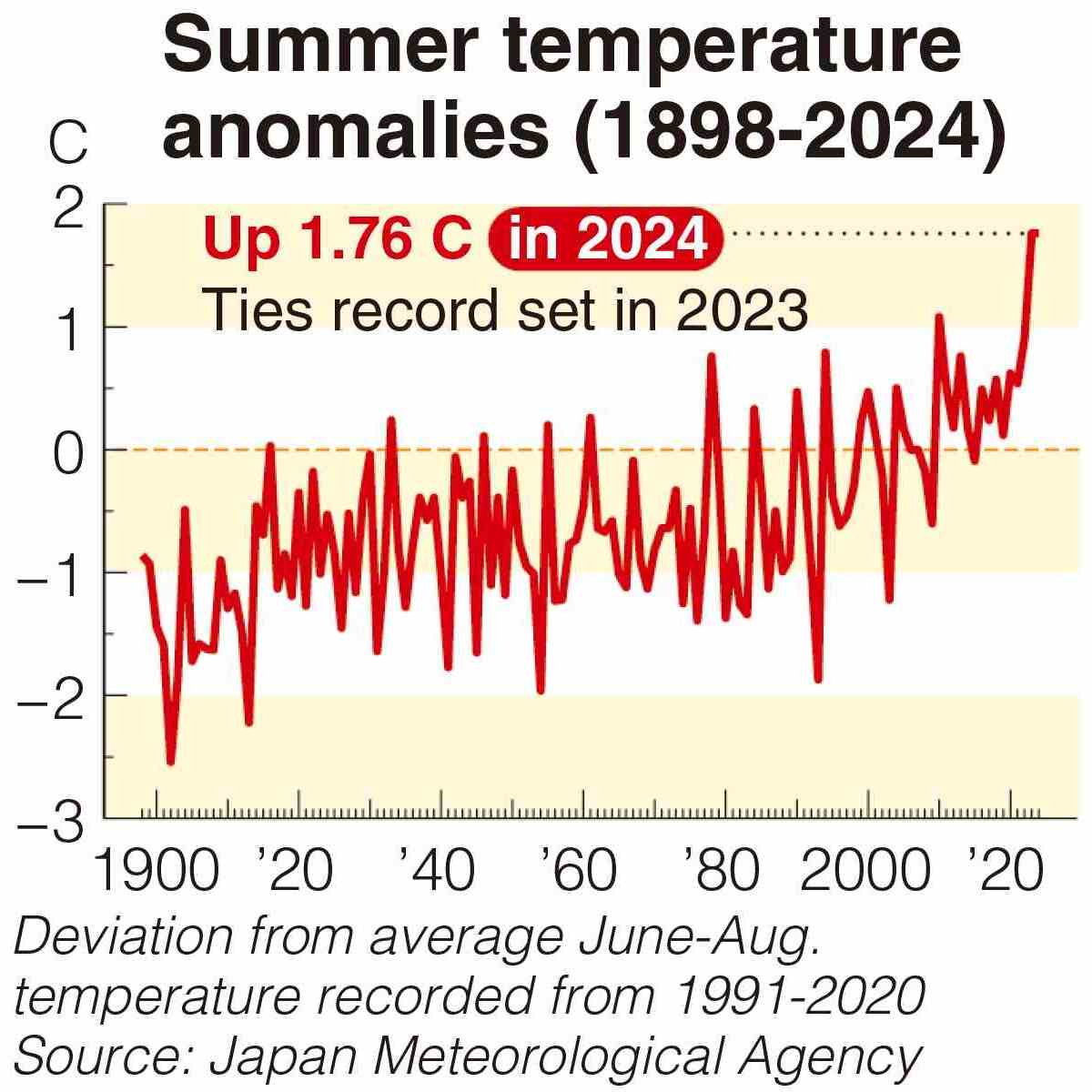Japan Ties Record for Hottest Summer Set Last Year; Strong Pressure System, Marine Heat Waves Drive Temperatures Up

People walking under the harsh sunlight in Osaka in July.
14:04 JST, September 3, 2024
Japan matched last year’s record for the hottest June-August period since comparable data became available in 1898, the Japan Meteorological Agency has announced.
The main driver of the unusual heat was a strong Pacific high-pressure system that covered a wide area of the archipelago, with the agency saying, “The heat this year was an anomaly.”
Marine heat waves, in which sea surface temperatures remain much higher than normal, have also been identified as one of the causes of the abnormal weather, according to the agency.
The number of locations that experienced heat waves was the highest on record.
The agency’s abnormal weather analysis team selected 15 observation points nationwide and found that the average temperature for the three months was 1.76 C higher than the average recorded over the 30 years from 1991 to 2020. The observation points selected are not impacted strongly by urbanization.
Each region in Japan experienced such very high temperature anomalies.

According to an analysis of data from weather stations at 149 locations nationwide, western Japan had a temperature anomaly of 1.4 C, while both Okinawa Prefecture and the Amami region had an anomaly of 0.9 C, all records.
Eastern Japan had an anomaly of 1.7 C, tied for the hottest on record, and northern Japan was up 2.3 C, to mark its second hottest summer on record.
Nationwide, 144 out of 914 locations tied or set their highest-ever recorded temperatures. Sano, Tochigi Prefecture, which hit 41.0 C on July 29, equaled the second-highest temperature ever recorded in Japan.
A total of 8,821 locations experienced “extreme heat” of 35 C or higher, surpassing the previous peak of 6,692 set last year. It was the highest number since the current statistical methodology was implemented in 2010.
“We can say that we’ve been experiencing abnormal weather again this year,” said Prof. Hisashi Nakamura at the University of Tokyo, who led the agency’s team. “Long-term global warming has caused temperatures in Japan to rise, making it more likely that such unprecedented high sea temperatures will occur.”
Top Articles in Society
-

Producer Behind Pop Group XG Arrested for Cocaine Possession
-

Man Infected with Measles Reportedly Dined at Restaurant in Tokyo Station
-

Man Infected with Measles May Have Come in Contact with Many People in Tokyo, Went to Store, Restaurant Around When Symptoms Emerged
-

Woman with Measles Visited Hospital in Tokyo Multiple Times Before Being Diagnosed with Disease
-

Australian Woman Dies After Mishap on Ski Lift in Nagano Prefecture
JN ACCESS RANKING
-

Producer Behind Pop Group XG Arrested for Cocaine Possession
-

Japan PM Takaichi’s Cabinet Resigns en Masse
-

Man Infected with Measles Reportedly Dined at Restaurant in Tokyo Station
-

Israeli Ambassador to Japan Speaks about Japan’s Role in the Reconstruction of Gaza
-

Videos Plagiarized, Reposted with False Subtitles Claiming ‘Ryukyu Belongs to China’; Anti-China False Information Also Posted in Japan























